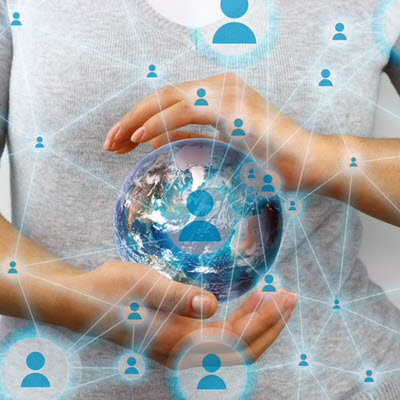
How do we honor those we depend on?
June 03, 2024
Kindness Matters
“Did you ever stop to think that you can’t leave for your job in the morning without being dependent upon most of the world? … Before you finish eating breakfast in the morning, you’ve depended on more than half of the world.“
-Dr. Martin Luther King, Jr.
Last month, I talked about the importance of acknowledging humanity’s interdependence. Recognizing how much we need each other can help us develop our ability to accept and feel kindness toward others. As Dr. King says above, we rely on the efforts of thousands of workers of all types from across the globe, simply to put breakfast on our plates. Consider that for a moment — teams of farmers, maintenance crews, shippers, marketers, grocery store staff, and more — all of these people were necessary for you to get the nourishment you need this morning.
Yet, we live in a society that often overlooks our everyday essential workers. We’re so accustomed to having our basic needs met, it becomes easy to forget how much global human effort goes into meeting those needs.
For many of us, COVID was an eye-opener in this respect. We rarely went a day without hearing the phrase “essential workers”, and we were constantly seeing fellow humans risking their health and safety in order to keep our society functioning. And while today, the danger and health risks are (thankfully) minimized — also thanks to countless people working endless hours — essential workers are still just as essential to our community and livelihood.
So how do we acknowledge them, and let them know how much we appreciate what they do for us? To put it simply — be kind. Tip your servers well, have patience when your delivery is running late, thank the person bagging your groceries sincerely. Offer a helping hand or listening ear to your friends suffering from work burnout. It’s a matter of remembering that every worker, every person, is a human trying their best. Everyone has their own talents, struggles, goals, good and bad days, and is deserving of care and respect.
There’s a story I’ve always appreciated about a child who watched her mother get their mailman cold water and ask about the health of his son when he came to deliver their mail for the day. The daughter asked incredulously, “Mom, are you friends with the mailman?!”
“Why wouldn’t I be?” the mother responded. “We could not get mail unless someone like Sam did his job. I appreciate his work. And being a mail carrier is not who he is; it’s what he does. He’s no different than you and me.”
What if we all had that attitude with those who contribute to our lives?
It’s important that we extend that appreciation to ourselves as well. Think also of processes that you play a part in and consider what special talents you have that benefit those around you. This can be your role in the workplace, with family, or in your social circle. Are you a great baker, ensuring that every party you attend is supplied with dessert? A great organizer, able to help your friends unpack after a big move? While you are a human being, not a human doing, you have something special and unique to contribute, as do we all.
The more often we acknowledge that all of us matter, the more acceptance and loving kindness we will feel for ourselves and others.
by Ann Friedman, Director of Curriculum for the Mind Body Spirit Institute of The Jung Center, Psychologist and Mindfulness Facilitator

